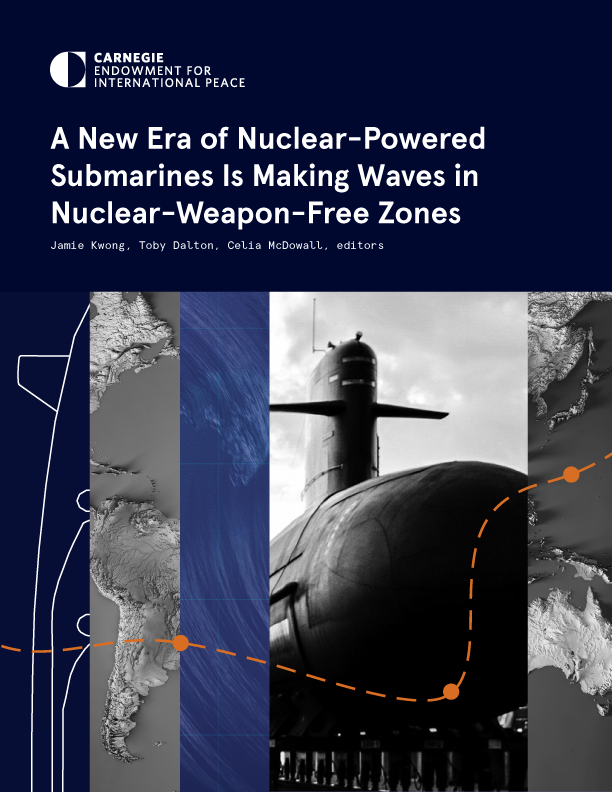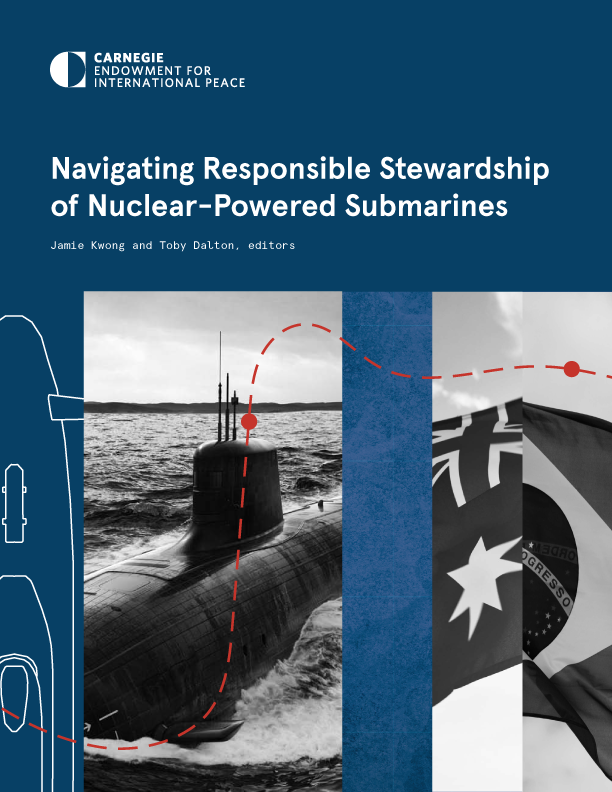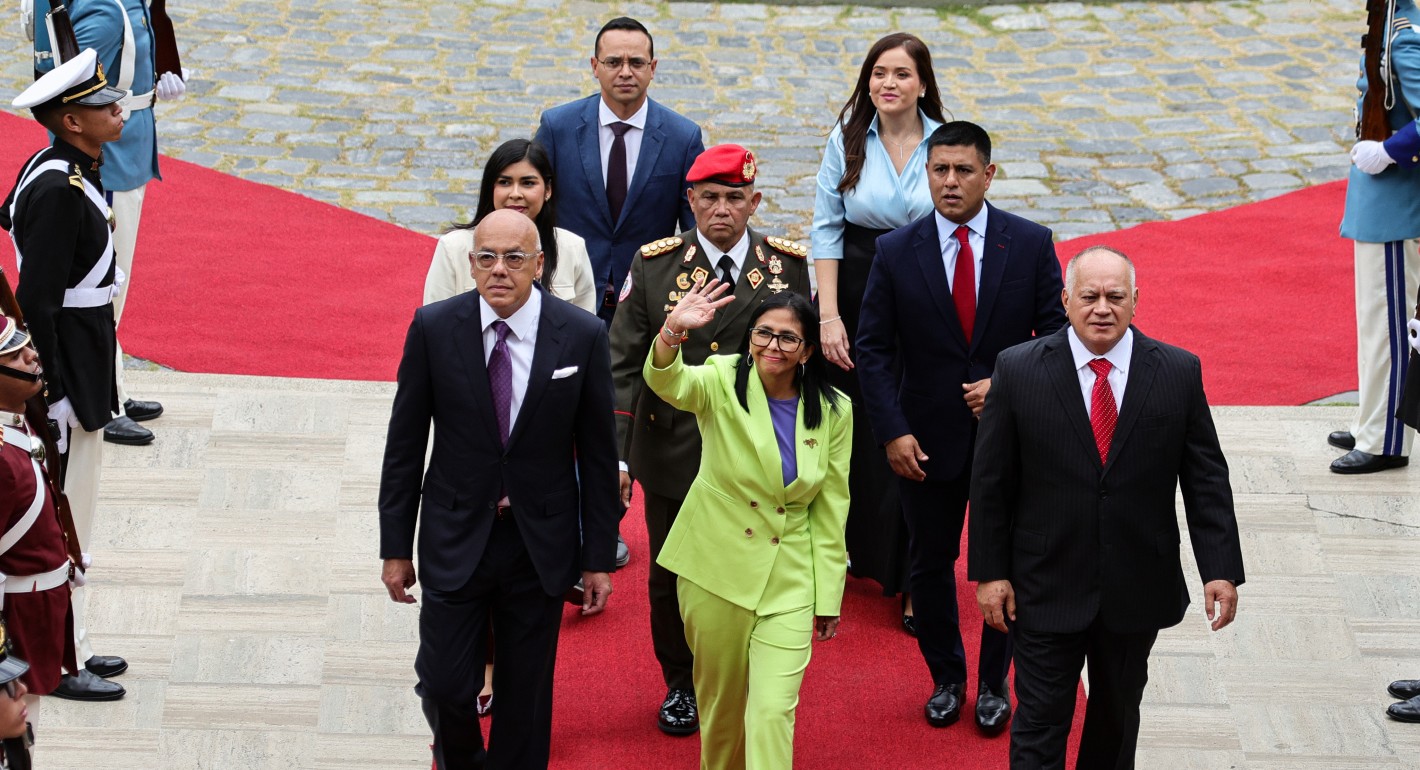Source: Carnegie
Published in Prospect magazine (London), issue 68, October 2001.
The US has been the target of a very serious act of war, conducted by a formidably cruel, brave, fanatical and well-organised enemy with a terrifying capacity for both savagery and self-sacrifice. At the time of writing, a few hours after the attacks, the casualty figures are not known, but it is clear that this has been by far the worst terrorist attack in history, and the worst attack of any kind ever directed against the US mainland. On the assumption that the perpetrators are identified, some form of strong military response to this attack by the US and its allies will be essential. Not to do this would be to betray the victims and display very dangerous weakness. Successful war however requires both a capacity for ruthless and intelligent violence and an effective political strategy, including the attraction and conciliation of essential allies. So what we also desperately need is a fundamental re-assessment of many of the attitudes which have guided US policies since the end of the Cold War. In some areas at least, we may even get this. For while war produces strongly emotional responses, it can also produce stark clarity of thought, and a radical re-ordering of previous priorities.
Such new thinking is essential not only on the part of the US, but also of Britain and other US allies. This is not only because the US will quite rightly expect our full support in hunting down and destroying the perpetrators of this atrocity. It is also because our own cities are under the same threat, and the extent of this threat may be critically determined by what actions and policies the US now pursues. We therefore have to work hard with the US to shape common strategies.
Last week's terror attack has underlined the irrelevance of America's dominant security priorities which are still rooted in Cold War attitudes and structures. Indeed, it could be said that as far as dominant groups in the US security establishment and politics are concerned, the Cold War only finally ended on September 11th 2001. This is above all true of three areas: First, the attempt to cast Russia and China as major threats to vital US interests. Second, the strategy of National Missile Defence (NMD) and the militarisation of space. And third, policy towards Israel and Israeli occupation of the West Bank and Gaza Strip-since it seems highly probable that this attack originated in the Muslim world and was motivated in large part by hatred of Israel and of US support for Israel. Very much against its will, the US is now effectively at war alongside Israel. That gives it the right, and-perhaps-the possibility of finally controlling some of its ally's more outrageous actions.
A hard-line response from the US itself is understandable and probably unavoidable. Moroever, it would of course be wrong to execute any sudden u-turns in policy, giving the perpetrators the idea that they have achieved part of their goal. But if a tough US response results in too much pressure - without accompanying aid and concessions - on the government of Pakistan and other fragile states (in the case of Pakistan, by forcing the Taleban to hand over Osama bin Laden) these states may collapse, with radical islamists left to pick up the pieces. This is where US allies need to play a part. Above all, a new US policy needs to be shaped by three linked realisations: First that since the end of the Cold War, there has come into being the basis of a unified world system in which the world's other leading states are partners, not enemies, and in which all these states are under threat from similar forces. In other words, there really is the makings of an "international community"-or would be if the US could only stop acting as if it alone constituted this community. And this community is based on shared adherence to Western-led modernity. The only categorical ideological opponents of the whole Westernisation and modernisation project are indeed religious extremists - who are not to be found in Moscow or Beijing.
Second, that with the exception of certain Middle Eastern states, the real threat to the world order comes not from states, but from below: from alienated and often impoverished populations. Combating the causes of terrorism has to involve some kind of economic and social programme, not simply military strikes. And third, since the US cannot occupy and police the Muslim world in the struggle against Muslim terrorism, it is essential to have the co-operation of leading Muslim states. This is something which was already emphasised by the aftermath of the attacks on Khobar Towers and the USS Cole. And as the investigations into these attacks also showed, Israeli and US policies since the Gulf war have undermined such co-operation.
A radical reordering of policy towards Israel may be a slender hope, at least in the short term. But when it comes to NMD and policy towards Russia and China a shift is more likely.
The failure, until now, to move away from the Cold War has its roots not only in various forms of inherited bigotry, but also in very strong interests within the US security needs a Cold War-type enemy: huge, identifiable, and above all, armed with either establishment. This establishment was a product of the Cold War, and it high-tech conventional arms or with old-style nuclear missiles. Hence the endless, hyserical insistence on the danger of a restoration of the Soviet Union-as if in early 1989, even Henry Kissinger had not been more than happy to live with the Soviet Union as long as Soviet troops withdrew from eastern Europe. In 1989-91 we won, damn it.
But Russia is not strong enough any more to fulfil that old Soviet role, so China has been widely promoted as a replacement. But a pathological loathing of Russia remains in important parts of the US establishment, and until last week at least some bizarre arguments continued to be made concerning Russia. Thus the leaders of the only institute in Washington explicitly devoted to the study of the Caucasus and central Asia has been arguing for a US reconciliation with the Taleban as part of a new strategy of driving Russian influence out of the region. In other words, these people wanted to revive the US policies of the 1980s-with which some of them were closely associated-of support for the Afghan Mujahedin; despite the fact that the Soviet global threat has disappeared, Russia is not in occupation of Afgfhanistan, and this past US policy has helped to produce Osama bin Laden and the safe haven given to him by the Taleban. Such people have sought to deny the presence of international Muslim radicals in Chechnya-though this group has a website which publicises its victories and casualties, and despite the fact that Osama bin Laden's aides have spoken publicly of sending volunteers and supplies to Chechnya. Hopefully we will now be hearing less of such stupidity.
Concerning NMD, no more argument should be necessary. For years now, US critics, US allies and other states have been arguing that the real threat to the US mainland comes not from ballistic missiles, but from terrorism; that a ballistic missile defence system would therefore be a form of Maginot Line which our enemies would simply outflank. After all, if a missile had been fired at the US last week, targets in the country responsible would already have been obliterated by a US counter-strike. Given the nature of the actual attack, there is some possibility that we may never be sure exactly which group or combination of groups was responsible, and therefore of how and where to retaliate.
One way of combating the kind of attacks we saw today is of course better security in the US; but even this will not necessarily prevent a terrorist getting through, as long as that terrorist is prepared to die. In the end, the key to fighting this war successfully has to be good intelligence-and given the extreme difficulty that US agents have of penetrating the world of the islamist extremists, for such intelligence the West desperately need Arab and Muslim allies. The Saudis in particular will have to be persuaded to drop the decades old strategy begun by Saudi Arabia's founder, King Ibn Saud after his defeat of his former Muslim Brotherhood allies. According to this strategy, the House of Saud has tended to turn a blind eye to Saudi-based radical activity beyond the borders of the kingdom as long as the radicals do not cause trouble within Saudi Arabia itself.
The help of leading Muslim states will also be essential if there is to be an invastion and occupation of some part of the Muslim world. For in their different ways, the US bombardment of targets in Sudan and Afghanistan, and the aftermath of the Nato bombardment of Yugoslavia, have both shown the inadequacy of long-range bombardment when it comes to destroying or controlling enemies on the ground dispersed and hidden in a friendly civilian population.
Unfortunately, over the past ten years US Muslim allies have been severely undermined by Israeli policies, and US refusal to act against those policies while continuing massively to help Israel with financial and military aid. Above all, this refers to the failure quickly and honestly to honour the Oslo agreement, the continuation of Jewish settlement in the occupied territories; and the failure of the West in general to offer generous financial aid to Palestinian refugees. All of this has been in defiance of UN resolutions, of the wishes of almost all other US allies, of all US allies in the middle east-and of America's professed principles and the rules it insists on elsewhere. The result of this has been the collapse of the peace process and renewed mass protest and terror-including for the first time by Israeli Arab citizens.
Israel and its US backers have continued with policies which were necessary at a time of existential threat to Israel: not only from its Arab neighbours, but indirectly from their superpower backer, the Soviet Union. Over the past generation, all this has changed-but basic US policies do not appear to have changed at all. With US military backing Israel crushingly defeated all its Arab neighbours, and forced two of them to make peace. By far the largest, Egypt, became an American client state. The Soviet Union collapsed, not only crippling the remaining radical Arab states militarily, but releasing an immense flood of Soviet Jewish emigrants to Israel, thereby establishing Jewish demographic superiority (within Israel's pre-1967 borders) beyond challenge. Due to this link, but more importantly because of a common threat from islamist extremism, Russia has actually become in many ways a de facto ally of Israel (at least when it comes to intelligence sharing)-as indicated by Sharon's recent visit to Moscow.
Saddam Hussein's invasion of Kuwait in 1990 united most of the Arab world behind the west's response. A key part of the price the US had to pay for putting this broad anti-Saddam coalition together was to promise its Arab allies to push Israel towards a just peace with the Palestinians. Largely as a result of the US failure to do this, US Arab allies have been reduced to what a Jordanian ex-minister described to me as "shell regimes." This very pro-western figure-he was a senior fellow at a US think tank at the time-said that the repeated humiliations of the Arab world by Israel had destroyed the domestic prestige of his own and other Arab elites seen as pro-American and hollowed out the entire state system. "The only reason we are still standing is because no-one is strong enough yet to push us over." As a result, he said, and without a radical shift in US and Israeli policy, for the US to ask again for strong Arab support in any matter would be hopeless.
It is not only unyielding US policy towards Israel which has undermined American diplomacy in much of the Muslim world-there has also been a failure to exploit opportunities. Major sections of the Iranian regime remain bitterly hostile to the US-but they are far more hostile to Iraq and the Taleban, who just happen to be America's own greatest enemies in the region. In 1998, after Taleban massacres of Iranian diplomats and Afghan Shias, Iran nearly went to war with Afghanistan. Up to now, this has not been made the basis for any new US strategy with regard to Iran-partly because an amazing number of US analysts have never even noticed it. A chance to gain a new ally in the fight against Sunni terrorism has been lost. Instead, the US is risking new action in the Persian Gulf in the face of Iraqi, Afghan and Iranian hostility, with Iran armed by Russia-despite the fact that all these states loathe and fear each other. US policy in the region is officially described as "dual containbment" (of Iraq and Iran). Up until last week at least, it was in fact more like quadruple containment (of Iraq, Iran, Russia and Afghanistan) in obedience to policies laid down by a profoundly ignorant US Congress under the sway of domestic lobbies.
However, simply to blame Muslim-based terrorism on Israeli policies would of course be grossly unfair and inadequate, for a whole set of reasons. The humiliation of the Arab and Muslim worlds by Israel is so infuriating to them in part because it is only the last in a long history of defeats starting in the 17th century and extending far into the 20th, above all at the hands of the Christian or western worlds. It is of course true that the west has often played a disgraceful role-at least in the 20th century, when it repeatedly betrayed its own professed ideals in its behaviour towards Muslim peoples. However, the key reason for these defeats has been the prolonged decline of the Muslim world relative to the west-defeats which were already producing radical Muslim responses (whether in Sufi or Wahabi guise) in the last decades of the 18th century. And the key reason for this decline has been the multiple failures of development and progress within the Muslim world.
It is the pathologies produced by these failures, as well as the appearance of Israel and the US as objects of hatred, which have produced the phenomenon of modern Muslim extremism. Though they have found their most widespread and powerful expressions in the Muslim world, these pathologies are not of course restricted to that world. They are to be found wherever proud people with strong but in part irrational traditions feel defeated or radically unsettled by aspects of western-dominated modernity and isolated from and ecploited by the Western dominated world economy.
Timothy McVeigh, the Oklahoma City bomber, can be seen in these terms, as can the Aum Shinriko in Japan. McVeigh comes from the old white Anglo Saxon (plus Scots-Irish), fundamentalist American lower middle classes and farmers, who have always seen themselves as the backbone of America, but now feel pushed towards the cultural and economic margins. Similar classes in Japan turned to fascism in part as a response to radical modernisation and westernisation from the 1860s on. Having been crushingly defeated in the second world war, these classes in Japan constructed a new state which while in some ways modern, western and democratic, preserved under the surface many aspects of former authoritarianism and paternalism, above all in attitudes to work, duty, and family. In recent years, these too have been undermined as a result of economic stagnation and moves towards a more western model of economics and behaviour-with desperately destabilising cultural and psychological consequences.
The danger to world order comes not from the ruling elites who are increasingly integrated into the global market order (even in China, Russia and India), but from the excluded: all those numerous social and ethnic groups who for whatever reasons of culture, history or geography are unable to take part in the world banquet-or who even if they have benefited economically, have declined in status. After all, the great European political pathologies of the 20th century did not have their roots in underdevelopment as such; rather they stemmed from the effects of uneven development and cultural change on deeply conservative societies.
Many of these excluded or downgraded groups and individuals are simply pitiable, far too weak and miserable to threaten anyone. Others however have proud cultural traditions which make it very difficult for them to accept peripheral, second-class status; and strong fighting traditions which give them a distinct edge in certain kinds of warfare, in organised crime, and in the areas where the two intersect. Such groups give hostile states the chance to hit at the west without exposing their hands directly and suffering consequent western retaliation.
Of course, such alienated groups form a relatively small minority of the world's population. The greater part of humanity has benefited to a greater or lesser extent from economic growth and "globalisation" in recent decades. But those who have not-or just think they have not-are still all too numerous. They can certainly not be mastered by the high-tech fighter aircraft, heavy battle tanks and enormous aircraft carriers on which the post-Cold War US military remains determined to spend so much money on.
This then is the dark side of the global village-the ability of that village's alienated minorities to hit out at their perceived oppressors over huge distances. The response will include attempts to improve global policing-but given the number of the alienated this will not make much difference.
Because the Muslim world was the oldest and grandest rival of the west, and its greatest "victim," because "fundamentalist" Islam provides a singularly tough and yet flexible ideological framework for modern extremism, and because of the role of Israel and the US as a focus of hatred, it is in the Muslim world that these pathologies have assumed their greatest and more dangerous forms.
It would be wrong to copy Samuel Huntingdon and posit one single Muslim cultural-political world united in difference from and hostility to the west. The Muslim world is immensely varied, both in its own cultures and in its attitudes to the west. In by far the largest Muslim state-Indonesia-radical Islam as yet plays a rather limited role. But sadly, one thing which does unite most Muslim countries is at least relative political and socio-economic failure.
With the exception of some of the oil-endowed Gulf States, and-to a limited degree-Turkey and Malaysia, every single Muslim country has failed to enter the developed world, whether in its western or east Asian variant. Almost all are menaced by rapid and in some cases virtually uncontrolled population growth, flooding inadequate labour markets with unemployable and consequently embittered young men. Almost all are failing to educate or use their female populations, in some cases disgracefully so. Two collapsed altogether, with Afghanistan becoming a crazed and murderous theocracy and international menace. Others are threatened with this fate. The behaviour of elites and state services across most of the region presents a deeply depressing picture. And most importantly, this has been true of regimes across the political spectrum, from authoritarian traditional monarchies and western-backed semi-democracies through anti-western radical nationalist and military regimes to ex-communist ones in the former Soviet Union.
It is hardly surprising in these circumstances that many people in the region have fallen back on revolutionary Islam as a last resort when everything else has failed, and on belief in a supposedly "Koranic" or Shariah system as a sort of political, social and economic default mode. As a result of all this, taken as a whole the Muslim world finds itself in a profoundly "peripheral" position vis a vis the western-dominated world 'metropolis"-while at the same time (unlike Africa or Latin America) retaining a deeply-felt-and assiduously cultivated-collective memory of the islamic sphere as a great cultural, economic and political metropolis in its own right.
So in attacking America, the Muslim terrorists are certainly not only attacking Israel's key backer, but also the central symbol of their own failure. And anti-American Arab nationalism is-in the classical fashion of all nationalisms-an ideology which is capable of sucking up and drawing strength from a whole set of other, unconnected resentments, including bitter resentment of the corruption and oppression of the Arabs' own regimes. Israeli and American behaviour has however provided a dangerous focus for all this.
The Chinese have some of the same historically-based feelings, and in the past this contributed to the appalling pathologies of Maoism; but China has the largest population on earth, with one of the world's fastest growing economies. This has also been true of the other Chinese states, Taiwan, Singapore and Hong Kong. Indeed the Chinese diaspora has been one of the most economically successful groups in world history. China.is a genuinely powerful, relatively orderly state under a nationalist and authoritarian, but rational and pragmatic leadership. China has become a successful participant in the Western-defined modernisation project. The position of the Muslim world is very different.
I gained certain insights into the roots of Muslim extremism during my work as a stringer for The Times in Pakistan and Afghanistan in the late 1980s-not only through meeting some precursors of the Taleban among the Afghan Mujahedin, but among radical groups in Pakistan. I especially remember a long conversation with some young members of a "fundamentalist" group in Lahore. Some of them came from longstanding Lahori families, others from fairly recent migrants from the countryside. None were from the bottom of society. Instead, they came from that classical breeding ground of fascistic and religious extremism, the proud but struggling lower middle class and actual or former upper peasantry.
They were under threat not only of sinking into the immiserated, semi-employed proletariat-with the Hira Mandi, or prostitutes' quarter, as the possible destiny of their womenfolk-but of only being able to escape and rise through entry into the junior ranks of organised crime, especially heroin smuggling. Given the state of the Pakistani economy, legitimate economic opportunities were few. Their traditional communities and cultures were being undermined by urbanisation and "atomisation." The semi-western, semi-modern new culture being thrust on them was of the most repulsive kind, especially concerning the treatment of women-a mixture of western licentiousness with local brutality, crudity and chauvinism.
In these depressing circumstances, adherence to a radical Islamist network provided a sense of cultural security, a new community and some degree of social support-modest, but still better than anything the state can provide. Poverty is recast as religious simplicity and austerity. Perhaps even more important belief provides a measure of pride: a reason to keep a stiff back amidst continual humiliations and temptations. In the blaring, stinking, violent world of the modern "third world" Muslim city, the architecture and aesthetic mood of the mosque is (like the Catholic churches in Central America described by Graham Greene in The Lawless Roads) the only oasis not only of beauty but of an ordered and coherent culture, and guide to living. And of course this is true ten times over for a young male inhabitant of an Afghan, Chechen or Palestinian refugee camp.
So it is hard not to have a measure of sympathy for some of the roots of Muslim radicalism; but its fruits of course are all too often utterly evil and hopeless, not least as far as Muslim peoples themselves are concerned. This has been evident among the radical fighters in Chechnya, and especially in the figure of the great commander Shamil Basayev, whom I met several times before and during the Chechen war of 1994-96-the only terrorist leader I have known personally-and whom at one stage I liked and admired. Basayev showed his capacity for utter ruthlessness in the terrorist raid and hostage-taking in the town of Budyonovski in June 1995, but at that time I, like other sympathisers with the Chechen resistance, was inclined to excuse this action as a response to a very brutal Russian invasion of Chechnya.
Of course, the key role in Basayev's progressive fanaticisation since then was due to that war, and the deaths of so many of his family at Russian hands. But a deeply malignant influence on Basayev was also exerted after 1995 by the international Muslim radical volunteers (the so-called "Wahabis," though they are by no means necessarily Wahabis in the strict theological sense) from the middle east, led by a commander with the nom de guerre of Khattab, who came to fight in Chechnya as they had previously fought in Afghanistan. Their influence over Basayev has been visible in his public language, which has more and more imitated their own. Above all it has been visible in the growing vicious contempt of Basayev and his followers-so typical of a self-appointed religious and revolutionary vanguard-for the West and indeed the rest of humanity, the mass of the Chechen people not least among them.
But Basayev, and indeed Khattab, are also examples of something else we must not forget. Like their analogues in the middle east and Afghanistan, these people are, or have become, deeply hateful. But they do not lack great courage, charisma, and ability. The endless western official and media description of Muslim terrorists as "cowards" is absurd. Cowards do not commit suicide in an attempt to destroy their enemies. As the last attacks make all too clear, these are in fact extremely formidable enemies, in their courage and their capacity for intelligent planning and organisation. Their technological skills may be limited; but they do not need such skills if with a few simple weapons-including the simplest and oldest of all, knives-they can seize the west's own technological creations and use them with devastating effect against us. In the future remains the threat of far more devastating attacks using weapons of mass destruction.
To fight these enemies successfully, the US and the west will need not only strength and determination but also high intelligence. And this will require radical changes to the entire US international posture of the past decade. During this period, US world hegemony has often been exercised-sometimes benignly, sometimes arrogantly-in a generally lazy, half-hearted, absent-minded way. One key reason for this is that as every US opinion poll and election has shown, the great majority of Americans, while proud of their "world leadership," are also profoundly uninterested in the details of its implementation.
And the reason for this is that until 8.45am on September 11th 2001, very few Americans believed in their hearts that anything the rest of the world could do could seriously harm them. The exception, alas, has been small but powerful ethnic lobbies and other fiercely committed groups, whose organisation and determination has given them remarkable power compared to the much larger, but apathetic and unorganised mass of the American population.
Now America, like other hegemonic states before it, is paying the price of empire. The essential other face of American unilateralism in the world has been a blief in America's invulnerability at home, with NMD supposed to complete the image of fortress America. Now this fortress has been breached, in a way that no unilateral US response can hope to prevent. Here is a paradox: that in the short term, fierce unilateral American or at least Western action is probably necessary to punish and deter the perpetrators of these attacks; but in the longer term, a continuation of American unilateralism would be a terrible threat to success in this war.
The time for absent-mindedness is past. But so too is the European tendency to rely on US help while not giving the US real support, and to whine endlessly about US policies while never having the courage to stand up and demand that the US change them. This is true both of misguided policies towards Russia and towards Israel. A change in the latter is now essential if Muslim terrorism is to be fought. For we cannot obviously do much, least of all in the short term, to help the Muslim world out of its deeply-rooted historical malaise, or to make up for centuries of defeats. But we can at least diminish, or at least distance ourselves from, the most glaring contemporary insult.
The immediate and natural temptation will be to lash out. Given the probable perpetrators of this horror, increased American hostility to the Arab and Muslim world in general is also very likely. But as well as the absolutely correct and just desire for revenge, cool heads, both in the US and equally importantly in Europe, must start thinking now about how the war against terrorism can be best conducted. Britain and Europe should participate fully in that war. But if they are to do so alongside America, and share America's risks, then they have not only the right but the duty - the duty to their own citizens - to influence key American policies and to make sure we have as many allies as possible from the rest of the world. As argued in this essay, the first, and simpler aspect of this is to end Cold War policies against Russia and China. The second is to change US policies towards Israel. That will be much harder and take much longer. But it too is essential if we are to win any real victories in this war.










